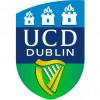NIA is part of an EU/UK set of interest groups that maps activities around research and cross-border implications during Brexit negotiations. The group is primarily focussed on health but has relevant actions for all sectors. The Group includes the Wellcome Trust, which recently published the report 'A Post-Brexit Report for Research and Innovation', published in January after development with economic think-tank Bruegel. The report simulates political process behind UK/EU negotiations around science and what an outcome may be.
The March 17 call included the following points, linked to the publication and in light of the EUs published negotiating position:
- Any extension to the transition period does not include rights to enter the Horizon Europe programme. It is increasingly likely that there will be a period of disruption for UK access, given current circumstances.
- Costs of any future UK participation may be based on an estimate of past financial success and include a correction mechanism that ensures it can never receive more than it contributes. This is a one way mechanism, so the UK would not receive corrections to reduce its contribution if the total was not spent.
- The UK woud have no voting rights within Horizon Europe, as no non-Member has this, but there is a precedent for soft influence through joint committees (as Israel has now).
- Wellcome originally acted on the assumption that ECJ and ECA would have jurisdiction, however with the change of UK Prime Minister, this is less likely to accur, which reduces likelihood of close participation.
- Mobility is a strong red line for the EU and currently, the Wellcome team could only stretch as far as a call for 'strong reciprocity'. This, alongside the ECJ oversight is likely to reduce extent of access.
- Likewise for regulatory alignment - the Wellcome report falls back on the text of the agreed Political Declaration
- Data is a central point for negotiation - cross border movement of data must be resolved but has not yet been addressed
- There are calls for a standalone deal addresing research, however the position from the EU is that there is a single over-arching agreement for the UK, rather than a series of individual agreements so this woulc be unlikely to work separately for research collaboration.
- Access will also be linked to UK conditions for EU students e.g. before ERASMUS access is agreed, university fees for EU students would have to be agreed. Currently, EU students study at the same fee-scale as UK students and it is much more expensive for all other students.
- All models of access refer most strongly to earlier stage research collaboration, innovation and competitiveness aspects are considered to be more challenging, as there is more direct industrial impact.
- Even without the COVID-19 challenge, polticial momentum is hard to assess. Internal discussions sugges that the gap between a deal and no deal is very small and that fatigue is evident across different bodies.
- Brussels wants to acheive a 'win win' scenario with the UK, however the negotiating team follows the principles of Barnier in seeking a systematic, coherent and practical agreement. As the EU is seeking an all-encompassing deal, negotiations are rather shielded and little indication is currently available of direction or speed of travel.



















